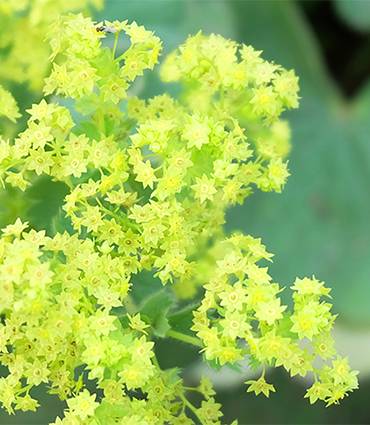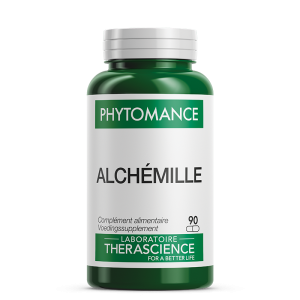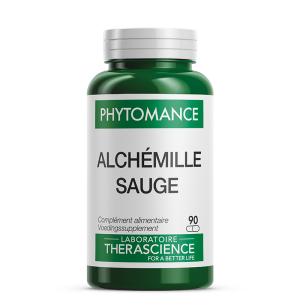
Alchemilla

Latin name :
Alchemilla vulgaris L.
Common Name :
Alchemilla
Family :
Rosaceae
Origin :
Europe
Plant parts used :
Leaf, Aerial parts
Description
Indissociable from the alchemists who used to collect the morning dew in the hollow of its leaves, considered as "celestial water" resulting from the condensation of effluvia circulating between the terrestrial and the celestial, the alchemilla has a mystical aspect.
Belonging to the Rosaceae family, this plant is also called "women's herb" and has been reputed to cure ailments since the Middle Ages.
Containing tannins (including proanthocyanidols, gallotanins and catechins) with astringent properties and a powerful haemostatic action, alchemilla stops bleeding, particularly in the event of haemorrhage or painful periods, which also enables it to indirectly prevent anaemia.
Alchemilla has many properties. The plant contains flavonoids with antioxidant action (quercetol, hyperoside, rutoside) and salicylic acid with anti-inflammatory properties.
In vivo studies have shown that taking alchemilla reduces endometriosis lesions and the associated inflammatory reactions.
Thanks to its anti-inflammatory, antioxidant, antispasmodic and sedative action, alchemilla offers numerous health benefits. It also has vascular properties, in particular thanks to its flavonoids which improve blood circulation. Moreover, alchemilla helps to fight against pelvic congestion syndrome by reducing the pain it generates.
Finally, alchemilla is known for its anti-infectious, antibacterial, antiviral and antifungal properties.
The benefits
Alchemilla contributes to digestive comfort by promoting the health of the gastrointestinal tract and the well-being of the liver. This plant helps to maintain a good comfort before and during the menstrual cycle.
In addition, alchemilla is also useful for muscle and joint health.
Scientific publications
Alchemilla is the subject of more than 90 scientific publications.
Our products based on Alchemilla
-
£26.30
-
£30.90
-
£20.90
-
£25.90
-
£49.90















